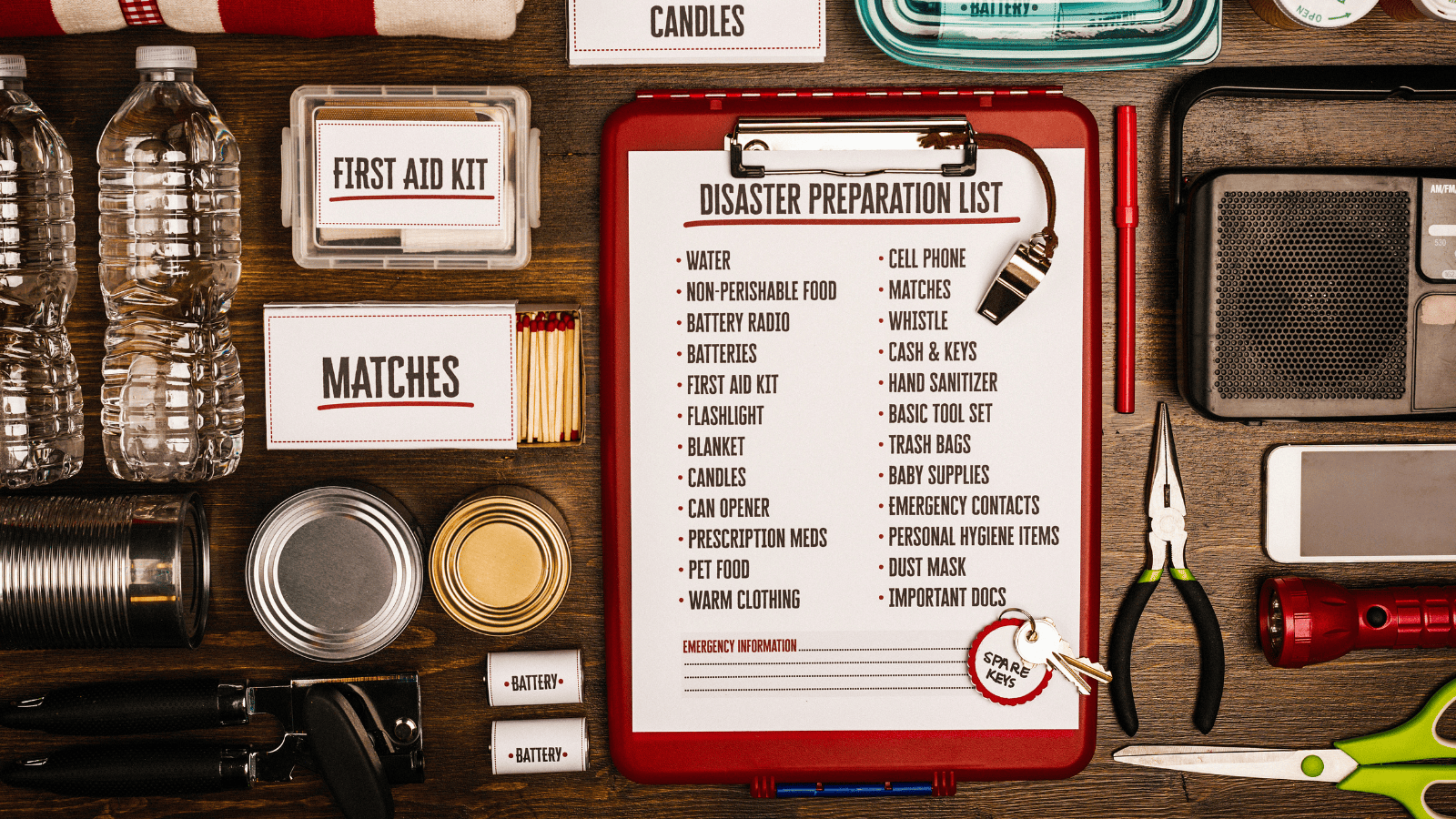First-Time Homebuyers Guide: What to Look for in Homeowners Insurance
Buying your first home is an exciting milestone, but along with it comes the responsibility of...
By: Albert AJ Johnson on Sep 12, 2024 2:01:58 PM

Living in Pearland, Texas, means that hurricane season is a reality every year. From June to November, the Gulf of Mexico becomes an active zone for tropical storms and hurricanes, which can quickly evolve into serious threats. Preparing in advance is key to protecting your home, your family, and your peace of mind. Here are 10 practical tips for hurricane preparedness that Pearland homeowners can follow to stay safe and minimize damage.
The first step to hurricane preparedness is ensuring everyone in your household knows what to do in case of an emergency. Designate a safe room within your home, preferably an interior room without windows, and decide on a family meeting spot outside of Pearland in case you need to evacuate. Make sure everyone has each other’s contact information, and establish a communication plan in case phone lines are down.
Pro Tip: Write down your plan and review it with your family. Have an emergency contact outside of the immediate area that can serve as a check-in point.
Hurricanes can disrupt daily life for days or even weeks, so it’s crucial to have enough supplies to last at least three days. Stock up on non-perishable food, bottled water (1 gallon per person per day), medications, pet food, and basic first aid supplies. Flashlights, extra batteries, portable chargers, and a manual can opener are must-haves.
Pro Tip: Don’t forget to include cash, as ATMs and credit card machines may be out of service during power outages.
Before a hurricane hits, gather all important documents such as birth certificates, insurance policies, property deeds, and medical records. Store them in a waterproof container or sealed plastic bag to prevent water damage. It’s also a good idea to scan and save digital copies of these documents to a secure cloud service.
Strong winds can turn loose items and overgrown branches into dangerous projectiles. Trim trees and shrubs around your property to reduce the risk of them damaging your home. Make sure to clear your yard of lawn furniture, potted plants, and other items that could blow away in strong winds.
Pro Tip: If you have a swimming pool, store outdoor furniture in it to prevent it from becoming airborne.
Your windows are vulnerable during a hurricane, and shattered glass can cause significant damage to both people and property. Installing storm shutters is the most effective way to protect your windows. If storm shutters aren’t an option, use plywood to board up windows before the storm hits.
Pro Tip: Pre-cut plywood to fit your windows ahead of time, so you’re not rushing to make adjustments when a hurricane is imminent.
Your roof and doors take the brunt of a hurricane’s force. Inspect your roof for loose shingles or tiles and make any necessary repairs before hurricane season. Reinforce your doors, including your garage door, which is often the most vulnerable part of the house during a storm.
Pro Tip: Consider installing door braces or hurricane straps to provide extra support.
Review your homeowners’ insurance policy to make sure it covers wind and flood damage, which are common during hurricanes. Standard homeowners’ policies often exclude flood insurance, so you may need to purchase separate coverage through the National Flood Insurance Program (NFIP). Be sure to update your policy if you’ve made any home improvements or purchased expensive items since your last renewal.
Power outages are common during hurricanes, and they can last for days or even weeks. A backup generator can keep your essential appliances running, such as your refrigerator, air conditioner, and medical devices. Make sure to use the generator safely, following all manufacturer instructions to avoid carbon monoxide poisoning.
Pro Tip: If you don’t have a generator, charge all your devices and backup batteries before the storm hits. Fill your car’s gas tank as well, since fuel may be scarce afterward.
Pearland is located near the coast, so residents may need to evacuate if a major hurricane is approaching. Be familiar with the official evacuation routes, and have a plan for where you will stay if you have to leave. Monitor local news and official sources for evacuation orders, and don’t wait until the last minute to leave—traffic congestion can be a major problem during mass evacuations.
Pro Tip: Keep a full tank of gas during hurricane season and pack a go-bag with essentials like clothing, toiletries, and any critical documents.
The National Weather Service and other authorities provide regular updates during hurricane season. Sign up for weather alerts from official sources like the City of Pearland, FEMA, and the National Hurricane Center to stay informed about any approaching storms. Having a battery-powered weather radio is also a good idea in case you lose power and internet access.
Pro Tip: Follow local emergency management agencies on social media for real-time updates and advice.
Hurricane preparedness is all about planning ahead and taking proactive steps to safeguard your family and property. By following these 10 tips, Pearland homeowners can reduce the risk of damage and increase their safety during hurricane season. Remember, it’s never too early to prepare—acting now can make all the difference when the next storm hits.
Stay safe, stay informed, and protect what matters most!
Buying your first home is an exciting milestone, but along with it comes the responsibility of...